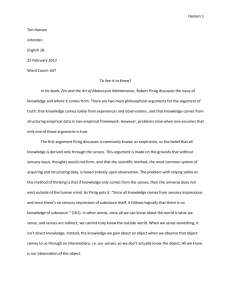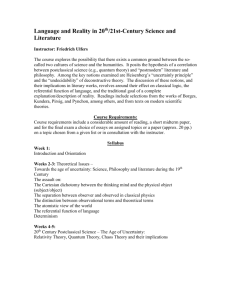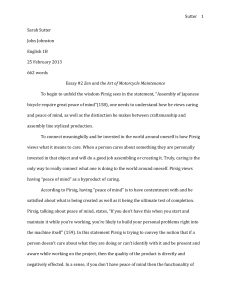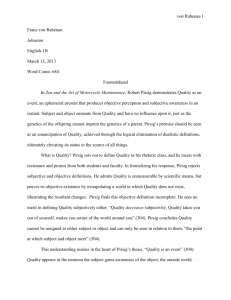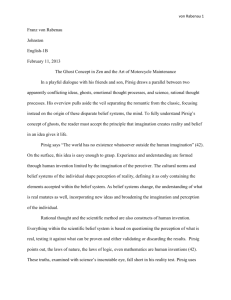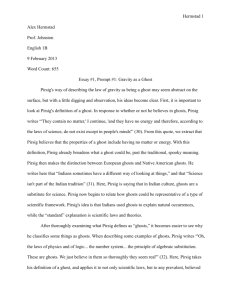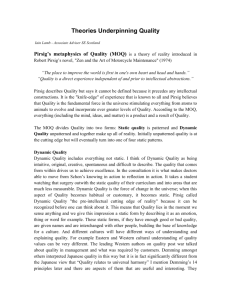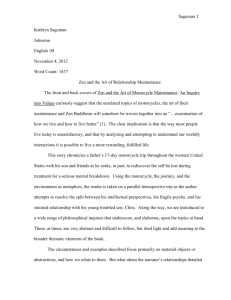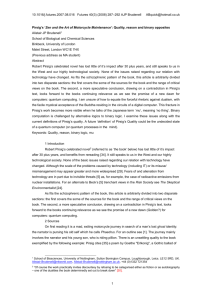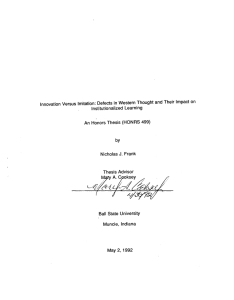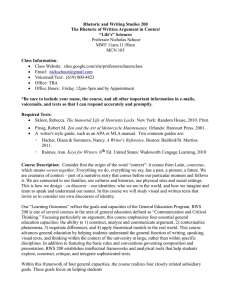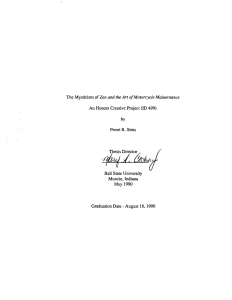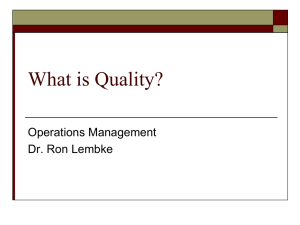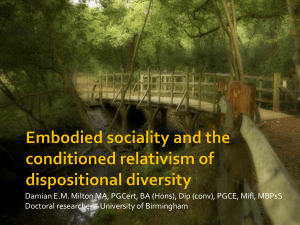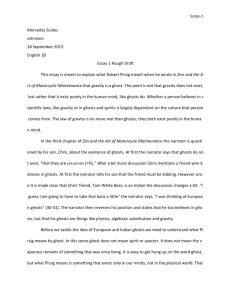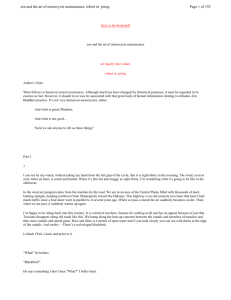The In Between
advertisement
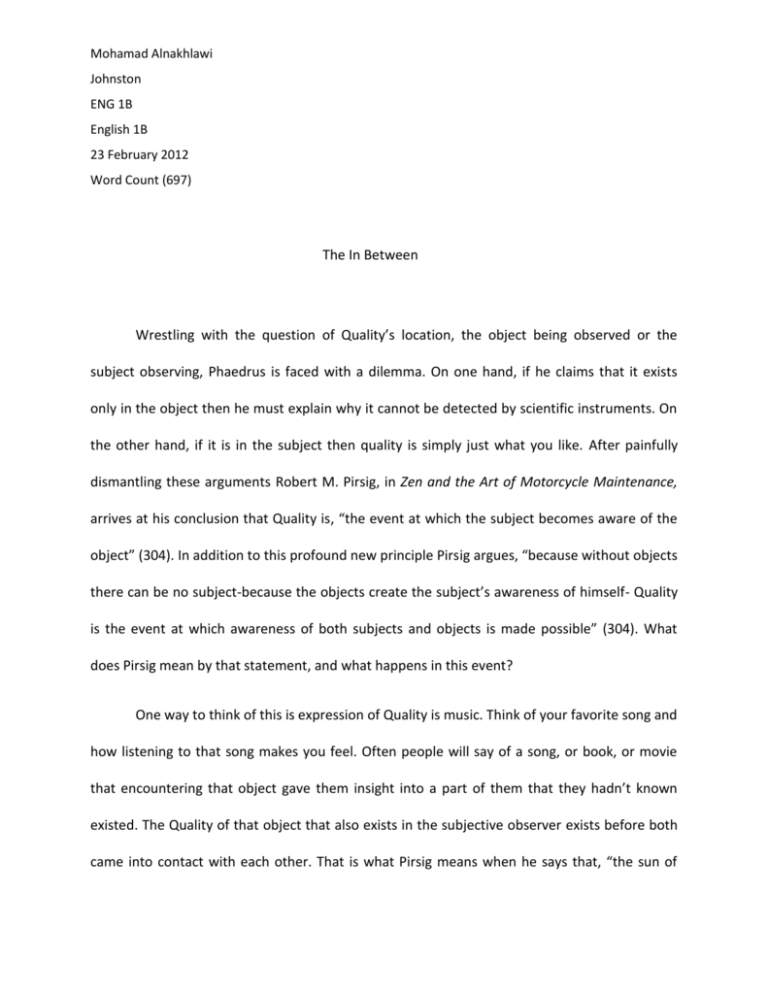
Mohamad Alnakhlawi Johnston ENG 1B English 1B 23 February 2012 Word Count (697) The In Between Wrestling with the question of Quality’s location, the object being observed or the subject observing, Phaedrus is faced with a dilemma. On one hand, if he claims that it exists only in the object then he must explain why it cannot be detected by scientific instruments. On the other hand, if it is in the subject then quality is simply just what you like. After painfully dismantling these arguments Robert M. Pirsig, in Zen and the Art of Motorcycle Maintenance, arrives at his conclusion that Quality is, “the event at which the subject becomes aware of the object” (304). In addition to this profound new principle Pirsig argues, “because without objects there can be no subject-because the objects create the subject’s awareness of himself- Quality is the event at which awareness of both subjects and objects is made possible” (304). What does Pirsig mean by that statement, and what happens in this event? One way to think of this is expression of Quality is music. Think of your favorite song and how listening to that song makes you feel. Often people will say of a song, or book, or movie that encountering that object gave them insight into a part of them that they hadn’t known existed. The Quality of that object that also exists in the subjective observer exists before both came into contact with each other. That is what Pirsig means when he says that, “the sun of Quality…does not revolve around the subjects and objects of our existence…It has created them…They are subordinate to it” (305). In this paradigm Quality is not just a reaction to a confrontation of subject and object, but as Pirsig claims, “the very existence of subject and object themselves is deduced from the Quality event” (304). If it seems at all insane, this maddening labor of trying to define Quality, then we must not condemn ourselves for being incompetent lest we fail to realize that this seemingly impossible task is what drove the subject of our book past the brink of sanity and into the padded walls of an asylum. Think simply of an orange, and the good of that object. Deconstruct that object; peel, pulp, seed, juice. Is the good in any of those parts? Can it be located and separated? Can it be isolated and synthesized in a laboratory? If not, then is the good of the orange in the enjoyment of it by a subjective observer? We know that it is good and that we can appreciate its good qualities, but that does not mean that our body or our mind houses the good of the orange. We can deduce from this reasoning that Quality exists in the event between the two. But Pirsig goes a step further in claiming that Quality has created both subject and object. More clearly Pirsig claims “Quality is the event at which awareness of both subjects and objects is made possible” (304). The key word in that claim is “awareness.” Pirsig is not claiming that without Quality we would not exist, he is questioning whether we would have awareness of our own selves without an object to observe. This claim is rooted in a theory not unlike the figurative eighteen year old boy that Pirsig discusses earlier in the book that has been deprived of any sensory data his whole life (160). This boy, as an example of David Hume’s philosophical thesis, would have no a priori knowledge of the world. In this hypothetical situation, does the world cease to exist? Certainly the boys self-awareness is impeded by his inability to experience any outside stimuli. Without the ability to observe how can thoughts, ideas, and opinions, which are all parts of awareness, be formed? How can we be aware of our own existence in a vacuum void of any other thing? How can we know we exist without an object to relate to? Quality is the event in which the awareness of subject and object is born. It is the moment of existential clarity that defines our reality. As it does so by our definition, or recognition, we are infinitely interconnected and dependent on each other for our mere existence. Works Cited Pirsig, Robert M. Zen and the Art of Motorcycle Maintenance. New York: Harper Torch, 1974. Print
